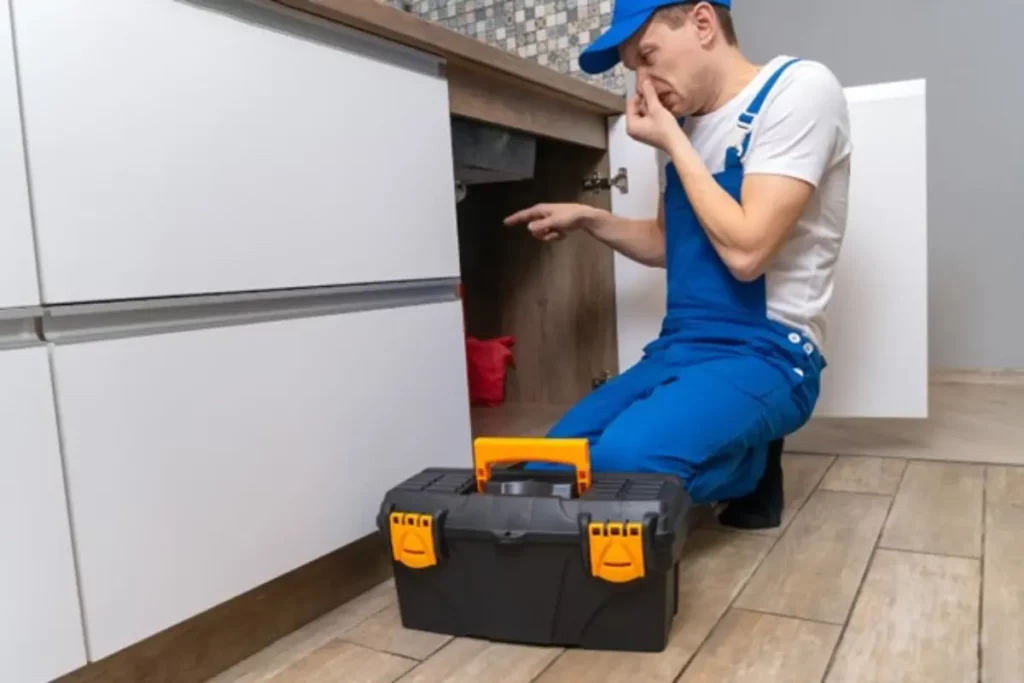At home, the best defence against damages and expenses caused by unforeseen plumbing mishaps is a good offence—proactive plumbing maintenance. Timely attention to the plumbing system can help avert minor issues that could potentially turn into significant problems.
This article presents 10 essential plumbing maintenance hacks designed to equip you with the knowledge to keep your plumbing system running smoothly. So, let’s set sail on this journey of exploration and learning, shall we?
Understanding Your Plumbing System
A home’s plumbing system’s basic layout typically includes water supply lines, drains, vents, and fixtures. Familiarity with the plumbing layout can aid in identifying problem areas and ensure proper maintenance.
Common components—necessities such as faucets, showerheads, water heaters, and toilets—each play a critical role. The first line of defence in a DIY maintenance toolkit? Wrenches, plungers, pipe cutters, and snake or hand augers.
Tips for Regular Check and Maintenance of Pipes
Frequent pipe checks are pivotal to ensure their optimal functioning. A simple way to test for leaks? Turn off all the taps and monitor the water metre; an unexpected increase suggests a possible leak. Regular cleaning and timely repairs can prolong a pipe’s lifespan. However, neglecting these tasks can result in leaks, structural damage, and in severe cases, pipe bursts.
Techniques for Maintaining Your Drains and Sewer System
Consistent maintenance goes a long way in ensuring healthy drains and sewer systems. Unusual smells or slow drains? These are tell-tale signs of impending sewer system issues.
Simple hacks for maintaining the drains include frequent cleaning and using a mixture of vinegar and baking soda for unclogging. Yet, plunging into the sewer system DIY-style isn’t always proficient. When faced with complicated issues—have a licensed plumber assess the issue.
Smarter Water Usage: Savvy Tips for Conservation
Proper water usage positively affects plumbing health. How to practise efficient water usage? Start with simple adjustments, such as fixing leaks promptly, installing water-efficient fixtures, and using the dishwasher and washing machine with full loads. Not only does this help maintain your plumbing system, it also contributes to water conservation—a win for both your pocket and the environment.
Decoding Plumbing Noises and Solving Them
Plumbing noises are alarming, but they can also be insightful. Different noises signify varied issues in the system; a hammering noise may indicate high water pressure, while gurgling could suggest a drain or venting problem.
Simple strategies such as securing loose pipes or installing a water hammer arrester can rectify these noises. However, when potentially harmless noises transform into persistent issues, it might be time to bring in the professionals.
Dealing with Plumbing Emergencies
Plumbing emergencies can occur at any time—burst pipes, blocked sewers, or major leaks are a homeowner’s nightmare. To mitigate the situation, learn how to promptly shut off the water supply or drain the system.
Yet, don’t hesitate to involve a professional plumber during severe emergencies. Always have an emergency plan, knowing who to call or what to do can be an absolute lifesaver.
Plumbing maintenance is an ongoing task, not a once-in-a-blue-moon activity. By implementing regular checks and maintenance, you can keep your plumbing system in shipshape, potentially saving thousands of dollars in repairs and replacements.
Each of these hacks lays a brick in the pathway to a hassle-free plumbing system, ensuring a safe and hygienic home environment. Here’s to efficient plumbing, fewer emergency call-outs and, ultimately, peace of mind.


